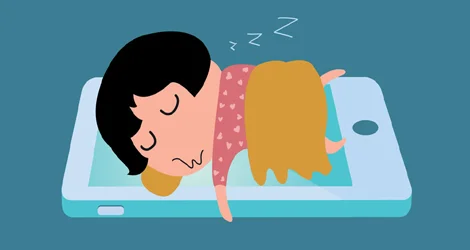Do you sometimes wish your computer understood English? That you could just tell it something as if you were having a conversation with a friend and it would understand exactly what you mean? That is the goal of Natural Language Processing (NLP) research in the computer science field. At the nexus of artificial intelligence, machine learning, and computational linguistics, researchers are studying how to better the human-computer interaction.
Viewing entries tagged
technology
There’s nothing that college students immensely value and yet routinely sacrifice as much as sleep. Most people immediately before nodding off for a night’s rest will routinely check their phones to set a morning alarm or to scroll through the latest social media feeds. Our mobile devices are now a necessity during every single moment of our lives, from waking up all the way to going to sleep. The National Sleep Foundation found that close to all adults under 30 years old - 96% total - use a technological device in the bedroom a hour before sleeping.1 So in what ways is using technology before sleep actually harmful and how can these effects be reduced?
For humans, learning is an inevitable task. From birth we are constantly analyzing our situations around us to learn about the world we live in. For more than twelve years of our life we even go to a designated area for eight hours a day to focus solely on learning. It is second nature for our species to gain knowledge through our own experience or through studying the experiences and findings of others. If there are more than seven billion people on Earth who already learn from their surroundings and trillions more living things that do the same, why would we want to teach machines to learn?
Whether you are a social butterfly always hanging around Rice University's RMC or your college commons or you are a hard-working student who enjoys studying in Fondren, you have probably encountered my favorite invention in the whole world, the HydroBoost water filter.
The world wide web has been around our entire lives (for millennials, that is). Many aspects of our lives are shared wirelessly to other people through various forms of social media on the internet. Recent trends show this connectivity is transferring to various technological devices as well. Known as the “Internet of Things” (IoT), machines that gather data are now communicating with each other via internet which allows the creation of new insight.






